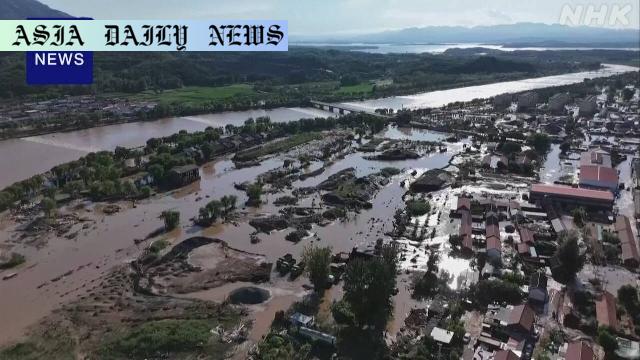Beijing Floods: Local authorities report 44 dead and nine missing after torrential rain caused flooding and mudslides in suburbs.
44 fatalities and nine missing persons reported due to heavy rain in Beijing suburbs.
Floods and mudslides caused widespread devastation in mountainous areas.
Criticism mounts over insufficient evacuation response and planning.
Calls for senior Beijing city officials to resign emerge on social media platforms.

The Catastrophic Beijing Floods: A Grim Toll
In early August 2023, Beijing faced devastating consequences following a week of relentless rain, which caused catastrophic flooding and mudslides in its suburbs. Local authorities have confirmed that 44 individuals lost their lives, and nine remain unaccounted for. The brunt of the torrential precipitation impacted mountainous districts, sweeping away infrastructure, damaging homes, and taking lives.
The Miyun district, in particular, bore much of the tragedy, especially within a senior living facility that was hit hard by the disaster. Tragically, the district’s chief admitted inadequacies in their emergency planning protocols, acknowledging that the facility was not identified as a location that required evacuation. This oversight exacerbated the loss of lives and has raised public outrage.
Failure in Emergency Response and Public Outcry
This disaster has led to a renewed wave of criticism of Beijing’s government. On Chinese social media, calls for senior officials to step down have been circulating widely. Detractors argue there has been a longstanding issue in implementing effective emergency measures, with poor planning highlighted in multiple instances.
The summer of 2023 has amplified the city’s struggle with extreme weather events caused by climate change. Similar flooding occurred just months ago, claiming 33 lives and leaving 18 missing. These repeating patterns suggest a growing urgency for Beijing, and other cities facing climate-induced natural disasters, to adapt and improve their policies and infrastructures.
Long-Term Impact and The Need for Proactive Measures
Flooding and mudslides are not random occurrences, especially with erratic weather patterns becoming more prevalent. Experts believe that policymakers must rethink urban layouts to minimize vulnerabilities to natural disasters. Additionally, investing in advanced drainage systems and enforcing evacuation drills should be prioritized. With Beijing officials facing widespread criticism, it is now important for them to demonstrate responsibility and take corrective measures promptly to prevent further loss of life. Without taking bold and immediate measures, such crises risk being repeated.
As China mourns the lives lost, this tragedy serves as yet another reminder of the toll that poor disaster preparedness can take. Improved and proactive solutions are crucial for ensuring the safety of citizens amidst an increasingly unpredictable global climate.



Commentary
Reflecting on the Human Cost of Natural Disasters
The Beijing floods once again underscore the human cost of extreme weather events, particularly when paired with lapses in preparedness and response. The confirmation of 44 deaths and nine missing individuals is not only heart-wrenching but also a grim reminder of the importance of robust disaster management systems. As a global community, we must use these unfortunate events to fuel a commitment to better planning, improved infrastructure, and heightened accountability in protecting lives.
The Role of Accountability in Crisis Management
It is disappointing but not surprising that social media has become a platform for citizens to vent their frustration with government officials. The failure to prioritize a senior care facility in evacuation protocols is especially alarming. Such oversight reflects gaps in localized risk assessments and emergency planning. Accountability must transcend mere acknowledgment; it requires actionable steps aimed at rectifying systemic problems and preventing their recurrence.
A Call for Collaborative Solutions
Moving forward, the Beijing floods should catalyze change not only in China but across the world. Cities prone to natural disasters must take a proactive approach by learning from areas already affected. Sharing innovations, such as weather-resistant infrastructure designs or early-warning systems, can bolster preparedness globally. Governments should also foster public engagement and community-led initiatives in developing tailored disaster management plans. After all, collective resilience is a shared responsibility in combatting the perils of our changing climate.
The 2023 floods highlight the devastating intersection of natural disasters and human error. As we strive to learn from these somber occurrences, let us aim for a future where such tragedies become far less frequent.